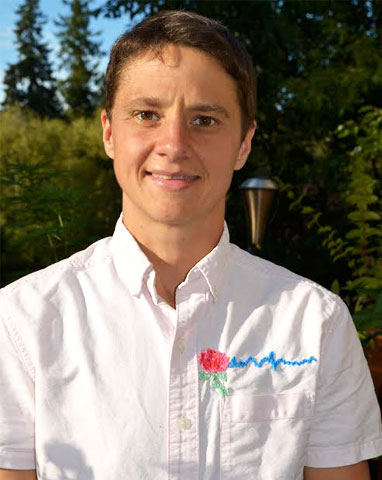How Honesty Changes Over A Lifetime
I’ve been applying to grad school programs again (for counseling so I can earn my mental health license so I don’t need to work under someone else’s mental health license), which I’m learning is a lot different now that I’m 42 (well, in two weeks) than when I last applied to grad school when I was 21-23. It’s not just that everything’s online now (including the entire programs to which I am applying), but I’m different, too. The thing is, 20 years ago I had no idea what it would be like during and after grad school. One might say that I was naive, but I think it’s more accurate to say that I was inexperienced, and now I am experienced. Obviously, I’m not experienced in everything, or else I wouldn’t need to go back to grad school, but I’m definitely significantly more experienced in life than I was 20 years ago. So when I had an interview (an online group interview) with the first program for which I applied in December, I found that my honest answers were different from the honest answers of my fellow applicants who were much younger than me. It’s not that I don’t think they were being honest, but I do think that they couldn’t be as honest as me due to not having as much experience.
For instance, one of the questions that was asked was “how do you deal with negative feedback?” Well, first, I should’ve asked the faculty member what she meant by that question because it didn’t become apparent to me until the end of the interview that it was a question about how we deal with feedback from our mentors/teachers/superiors, and not what I took it to mean which was someone complaining about me or saying something negative to me about me. So my answer was that my first instinct is to feel a little defensive (as I assume most people feel since that’s often how they behave), but that I’ve learned to take a step back and try to understand if I agree with them or not and if it’s something I need to change, but that I generally understand that negative or positive feedback usually says more about the person giving it than necessarily about the person receiving it. As you might guess, the others in the group basically said that they love negative feedback and use it to grow and become better people, blah blah blah. I could’ve said that (and I probably would’ve choked on it in my throat because of the heavy b.s. and brown-nosing factor), and I probably would’ve said that 20 years ago when I didn’t want anyone to know that I had any imperfections (as if they couldn’t see them, anyway). Now I am confident that even with my imperfections, I’m no worse than anyone else, and I am still a good person, so I wasn’t shy about admitting that I don’t like negative feedback. Had she asked how I deal with “constructive criticism”, which is what I think she was trying to ask, then my answer would’ve been closer to what was clearly the “correct” answer.
Anyway, I was not accepted into that program and I’m 99% sure it was all because of that interview when I was being honest. Now, mind you, I’ve been rejected from things before so it’s not that I’m unable to grasp that I can be rejected, but this was truly a surprise because I understand that interviews like this for grad school are often just as much about selling the program to us as it is about selling ourselves to them. To be fair, I had already decided that I wouldn’t continue with the program since I hadn’t checked the price before I applied (it was a free application, so I half-whimsically applied without investigating the logistics too carefully) and it’s over $100k for the 2.5 year program! Holy moly that’s expensive and not worth it since the median income for a licensed, professional counselor is in the mid $40k range. I think it’s pretty insane to put that kind of debt on someone who’s never going to make that kind of money!
This actually brings me to another honest answer I had that probably was to my detriment – the faculty member asked what our biggest obstacle to success is and my first (and most truthful) answer was MONEY! MONEY! MONEY! Because I wouldn’t need to go back to school and get a degree in counseling if I had enough money to sustain me so I could give everyone neurofeedback for free! I probably would still need to get my mental health license, but I wouldn’t need to worry about the cost of going back to school! Alas, I am not independently wealthy, and thus, I need to charge for my services, etc. But after I said that money was my biggest obstacle I said that I also have a more self-reflective answer since I know that’s what they’re looking for and I went on to talk about how “focus” has been an issue for me in my life which my grad professors brought up and then my post-doctoral mentors reiterated. (Of course, what they really wanted was for me to do nothing other than research at the lab all day every day because that’s the expectation – and one of the reasons I left research – which I tend to think is rather unhealthy, especially for someone like me who has a lot of different interests and abilities.) Anyway, I still stand by original answer and I know everyone knows it’s the gosh-darn truth. Money is almost always the biggest obstacle to doing what you want to do in this life, which is how I define success. For instance, going back to grad school is going to cost a lot of money and I’m making my choice of which program to go into based largely on the cost of the program due to not being able to take on such massive debt.
So I was thinking about how my honest answers have changed over my lifetime so far, and I think it’s something we need to consider when we ask others to be honest with us. The less mature, less experienced people are, the less likely their honesty will be all that true. They will be as honest as they can be, but it may not even be their truth. So we just need to be aware of that and maybe adjust our expectations when we ask different people for their honest answers.




Recent Comments